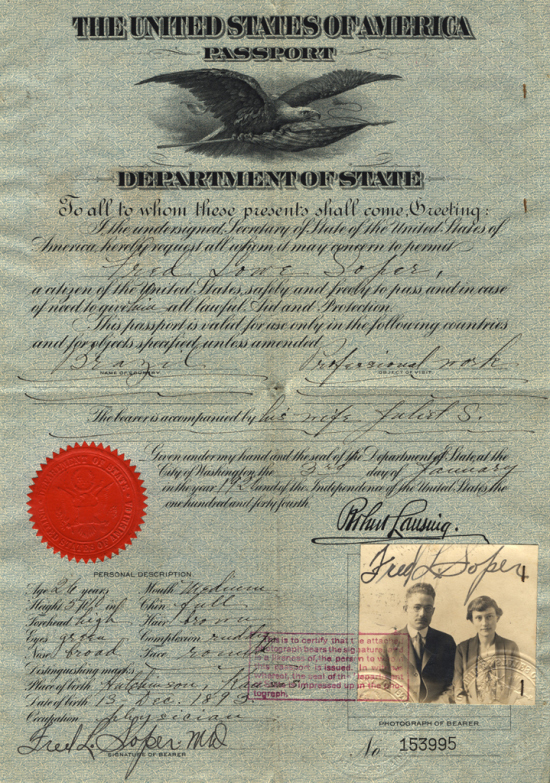passports
Fred Soper - Wikipedia
I happened across an historical US passport for Fred Soper (1893-1977), the American epidemiologist and public health administrator, while doing some research on paperwork. The National Library of Medicine has a page on Fred Soper under their "Profiles in Science" project, but Soper's Wikipedia page is quite lacking (updates have been made since 2015). Updating Wikipedia for this historical figure would make a great project for a History and/or Digital Humanities class. There's also a listing of primary visual sources, with high resolution images.
(Revised and republished April 13th, 2025)
Q & A with Craig Robertson on The Passport in America
Craig Robertson, by Christopher Klein at the Boston Globe, 2013.
The assumption behind the system set up after World War I was that you needed an identity document. Of course, this is a time when very few people had driver’s licenses, so the birth certificate was the key document. The US didn’t achieve universal birth registration until 1933, however, and in 1942 the Census Bureau estimated that 40 percent of Americans still lacked birth certificates. So the State Department required those without birth certificates to get sworn statements from one of three people who was deemed to have been able to witness the birth: the mother, a doctor, or a midwife. And if none of those three were available, a friend who was a US citizen had to vouch for your citizenship. So you were no longer seen as a reliable source of your own identity. You needed someone else to verify it.

United States Passport for American epidemiologist, Fred Soper, 1920. National Library of Medicine revised 2025 link, image doesn't seem to load. Wayback Machine link for image.
(Revised and republished April 3rd, 2025)